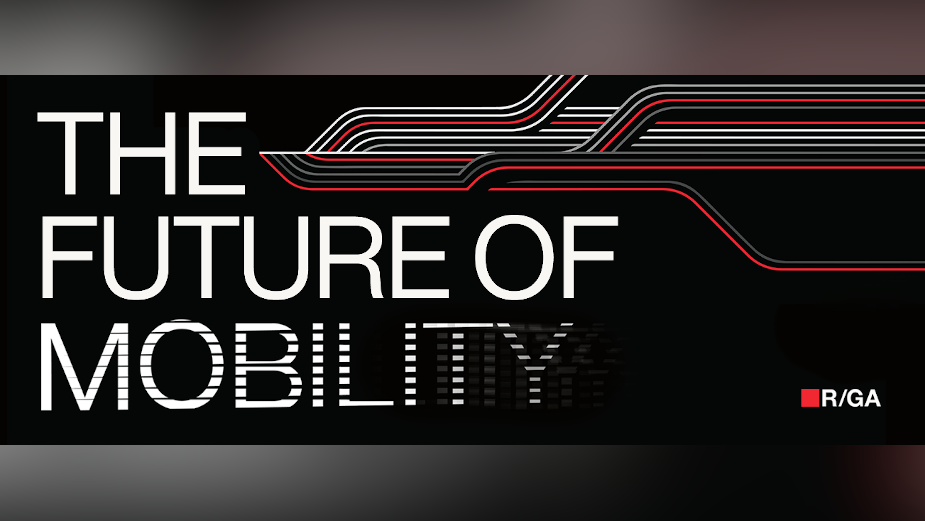
Two-Thirds of People Don’t Believe They Will Have The Transportation Flexibility to Meet Future Needs

The R/GA Future of Mobility Report shows that two-thirds of vehicle owners globally (67%) feel they will not have flexible transportation options in the future, even with the rise of new forms of mobility. This poses new opportunities in addition to new risks for automotive incumbents, who face a threat of losing direct access to customer relationships with the decline of car ownership.
According to the report, two-thirds (66%) of personal vehicle owners and eight in ten (82%) of leases are willing to give up their vehicles in favour of Mobility-as-a-Service (MaaS) over the next 10 years. For this reason, the automotive industry and service providers can play an even more prominent role by reshaping their mobility services and products to avoid being commoditised to earn a valuable role in people’s lives.
The key findings of the report are:
- While 91% of personal vehicle owners said their vehicles give them a sense of freedom, 75% wish they could drive their personal vehicle less.
- 66% of personal vehicle owners and 82% of leases are willing to give up their vehicles in favour of MaaS over the next 10 years.
- Car sharing is estimated to reach 36 million users by 2025, and the usership from ride-hailing and taxi services alone has grown to 1.4 billion customers.
- Global mobility service revenue is expected to grow to $1298B by 2024 from $616.1B in 2020.
Ashish Prashar, global chief marketing officer of R/GA, stated: “We take “mobility” for granted, it’s synonymous with transportation, but moving stuff and people is a basic description. Mobility is more than that. It’s about access. Getting to places necessary for living a healthy life – your job, school, community centres, and parks. Living by a bus that comes once an hour isn’t mobility. And owning a car in a city with congested highways isn’t mobility, either.”
Ashish added: “Mobility isn’t just having access to one mode of transportation. Mobility is having transportation options and the quality of those options. The future of mobility will require investment in infrastructure. More Mobility-as-a-Service (MaaS) as a reflection of the diversity of consumer lifestyles. It’s now more important than ever for transportation companies to make space for connected people-first experiences that allow for a differentiated brand offering.”
Consumers’ emerging needs and mobility behaviour
The shift toward accessing mobility services is projected to accelerate as consumers’ lifestyles adapt, creating a need for more flexible mobility options. The emergence of Mobility-as-a-Service (MaaS) has been accelerated by congestion in cities, high traffic, ease of parking, and the personalisation of mobility services. The emergence of Mobility-as-a-Service (MaaS) has become an efficient and reliable means of transport due to flexible mobility options to suit consumer’s needs and living conditions.
MaaS provides freedom, but there are two primary barriers to adoption
Mobility-as-a-Service (MaaS) provides consumers with the inefficient costs of personal vehicle ownership, door-to-door transport, and dynamic, personalised options to suit consumers’ evolving travel needs. Consumers who use MaaS services more frequently become more likely to see MaaS options as a viable replacement for their vehicles. The desire to switch to its services is not unique to urban consumers. 86% of all vehicle owners globally, including those in suburban and rural environments, want to try new transportation options. The two remaining barriers to consumers’ using MaaS more frequently indicated are “lack of availability in my area” (35%) and “safety concerns” (35%).
Brand as an Operating System: mobility players who own the consumer relationship will play an outsized role as the MaaS ecosystem mature
Brands must facilitate seamless integration and access to other brand services within their own consumer experience to drive recurring value. 83% of vehicle owners globally consider access to multiple services on an easy-to-use app experience to be a factor when deciding to use a MaaS service more than once. Although an easy-to-navigate app experience that provides access to multiple services drives the continued use of a MaaS brand’s service, it is important that all the connections feel relevant to the brand curating the experience.
Download the full report here.













